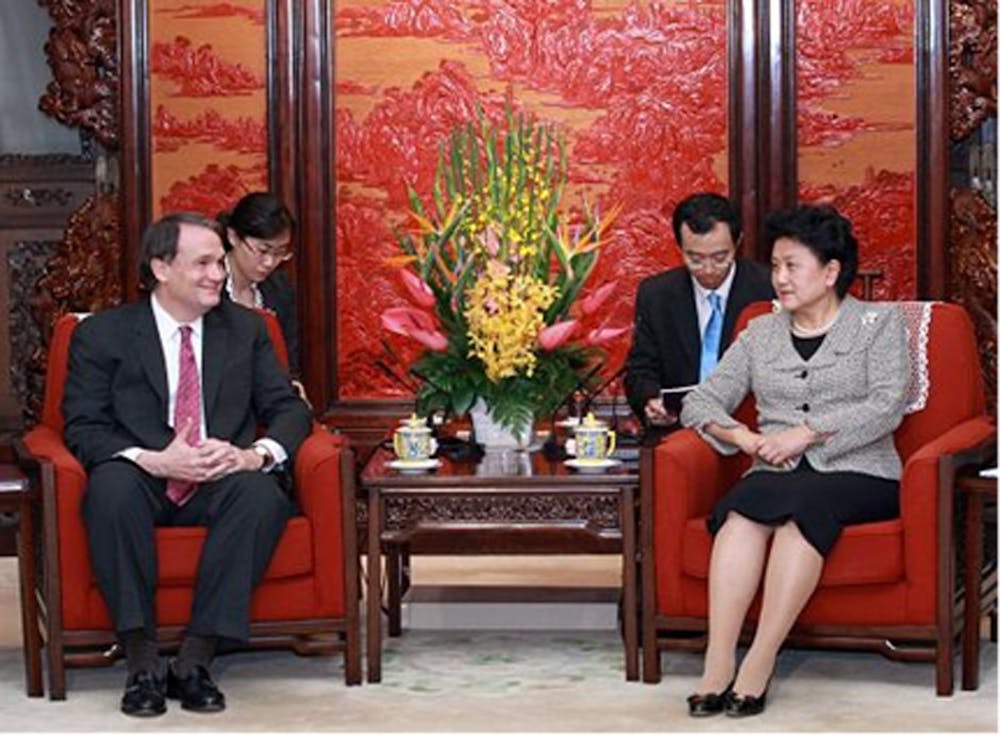
The Penn Law School is collaborating with its Chinese counterparts to advance the role of legal education in both the United States and China.
At a summit in Beijing last month, Dean of the Law School Michael Fitts and Associate Dean for International Affairs Amy Gadsden were among nine American and 10 Chinese law deans who met to discuss the importance of the rule of law and affirm their dedication to fostering international cooperation in promoting the legal profession.
The deans exchanged thoughts on the “present state and future needs of legal education in both countries,” according to a Penn Law statement, culminating in an agreement to form an assembly of five deans from each nation to “develop new programs that will foster multilateral exchanges between law schools.”
Fitts said the summit was an overall success for both sides, stating that it went “extremely well.”
“Never have law school leaders from the two major economic powers met,” he added.
The Chinese delegation was particularly interested in cultivating international engagement when it comes to strengthening legal education, Gadsden said.
“The Chinese team had a lot of experience in internationalization,” which is especially evident in the amount of Chinese students it sends abroad to study at American law schools. Gadsden cited a recent statistic that more than 120,000 Chinese students went to American law schools, compared to just 16,000 American students who attended Chinese law schools.
Fitts added that one of the focal points of the Chinese side was their tremendous interest in how American law schools teach their students leadership skills and analytical thinking.
Both Fitts and Gadsden recognize that American and Chinese legal systems are at different stages of development.
“Obviously the legal systems are at different places in their evolution,” Fitts said. “The U.S. robust legal system and legal education is central to the political process. China, in terms of evolution, is rapidly expanding.”
With more than 600,000 law school students, China currently has more law students than lawyers, according to Fitts.
This disparity has the potential to reshape the rule of law in China, a country with a well-documented history of neglecting international statutes protecting human rights, Gadsden said. “The hope is China will develop a robust legal institution that lines up to international human rights norms and the letter of Chinese law,” she added.
Several ways that Penn Law and other American law schools can help with such development include the growth of faculty-student exchanges, Fitts said.
“This conference was good for Penn Law School and Penn leadership on the global stage,” he added.
The Daily Pennsylvanian is an independent, student-run newspaper. Please consider making a donation to support the coverage that shapes the University. Your generosity ensures a future of strong journalism at Penn.
DonatePlease note All comments are eligible for publication in The Daily Pennsylvanian.







